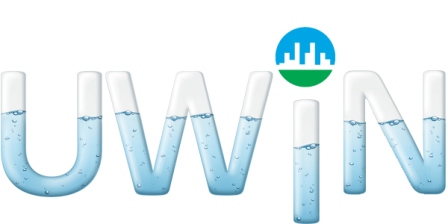2017 Mid-Atlantic Stakeholder Engagement Workshop
Understanding water challenges, success stories, and potential solutions
Date: June 20, 2017 9:30 am – 3:00 pm
Location: University of Maryland, Baltimore County – South Technology Center, Building 1450
1442-1450 South Rolling Road Halethorpe, MD 21227
Background
The UWIN 2017 Baltimore Mid-Atlantic Stakeholder Science Workshop convened stakeholders and researchers in a day of discussion on pathways to integrated water management in the region. The meeting represented the 2nd National Team UWIN engagement at UMBC. After a brief update on the UWIN project, which included results from the first year of national stakeholder workshops, participants were led in a facilitated discussion. The discussion focused on potential pathways toward integrated urban water management and the complex nature of obstacles that stand in the way of progress toward solutions. Over lunch, a presentation on funding and finance mechanisms for integrated water solutions was provided by UWIN researcher, Alex Maas. During the afternoon sessions, participants expanded upon the morning’s conversations to include potential mechanisms to help the region overcome the barriers which they had identified. Discussions allowed the group to collaboratively identify research questions and to improve researchers’ understanding of the decision context. The table below identifies the pathways that were discussed as well as the barriers and potential responses shared by stakeholders.
Participants
Twenty-seven individuals, representing federal, county, and city government agencies, community based non-profits, and university-based research teams were in attendance.
Key Findings
Finally, participants shared their take-away lessons from the workshop, as follows:
- The role of the federal government was discussed on a number of levels at the workshop, DOT, EPA, funding shortages; we need to rethink these relationships. It is possible for professional organizations to write bills to amend policy like the Clean Water Act. Local governments should write papers that suggest changes to CWA for when federal government is ready.
- Coordination and opportunities to improve planning and processes should be addressed. This is an opportunity for further research. Compartmentalized governments are not working for us. We are all working toward same goal but we don’t talk openly. The structures of authority are still on the local scale. Funding, time constraints, non-existent relationships, permitting requirements are all barriers to coordination because folks are so acutely focused on independent tasks and responsibilities.
- Marketing approaches and behavioral research are needed to deliver messages.
- Connection between regulators and public are very limited; mid-level managers are disconnected from both.
| Pathways | Barriers |
Responses |
| Integrate across agencies |
|
|
| Build societal knowledge to encourage acceptance of GI and other “One Water” approaches |
|
|
| Adopt a more comprehensive approach to stormwater management that incorporates green infrastructure and expands funding for programs |
|
|
| Alter Clean Water Act to integrate planning |
|
|
| Improve Marketing |
|
|
| Funding |
|
|
Workshop Goals:
This workshop will focus on institutional (technical, policy, financial, human) pathways that foster transition toward coordinated, aligned, and integrated management of urban water systems. Perspectives, suggestions, and feedback from meeting participants will inform and shape the UWIN National Blueprint. Meeting activities will advance understanding of factors that influence coordinated and aligned actions and decision-making. Information will be synthesized and summarized to help UWIN researchers create actionable science in subsequent years. The meeting will also foster networking/relationship-building between participants within the Mid-Atlantic, across the Nation, and with the UWIN research team.
Location: University of Maryland, Baltimore County – South UMBC Technology Center Building 1450 1442-1450 South Rolling Road Halethorpe, MD 21227
Parking: Free, on-site parking available
| 9:30 am – 10:00 am | Continental Breakfast
Pre-workshop survey |
| 10:00 am – 10:30 am | Welcome, Introductions, Year One Review
Mike Sukop Welcome, agenda overview, UWIN and stakeholder self-introductions, what we heard from you last year Description of Integrated Urban Water Management approaches with focus on institutional processes, description of blueprint and why one is needed, models of success |
| 10:30 am – 12:00 pm | Session #1: Futures, Pathways, and Institutional Policy Innovations for Coordinated, Aligned, and Integrated management of Urban Water Systems Focus: Explore potential IUWM futures and pathways, identifying attributes (social, technological, economic, environmental) of each, informing the Blueprint; select 3 priority pathways/solutions for unpacking in Session #3 |
| 12:00 pm – 1:30 pm | Lunch Session #2: “Integrated Water Management: Funding, Financing, and the Future” Dr Alex Maas Focus: Current water system funding and financing, alternative models, and case studies illustrating strategies for funding and financing IUWM |
| 1:30 pm – 2:30 pm | Session #3: Futures, Pathways, and Institutional Policy Innovations for Coordinated, Aligned, and Integrated management of Urban Water Systems (Continued) Focus: Building on Session #1 and lunch presentation, explore highest priority futures and pathways in terms of targets, goals, metrics, and barriers to implementation and potential responses to overcome them |
| 2:30 pm – 3:00 pm | Workshop Closing Discussion, Synthesis
Mike Sukop |
